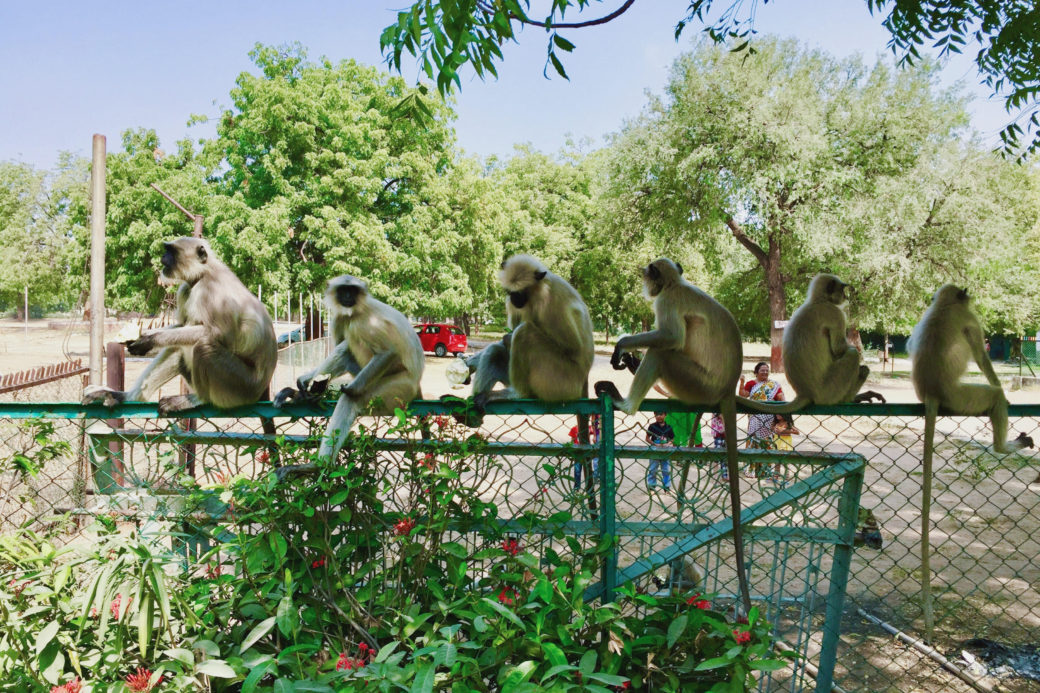This post was especially hard to write about because I had to self reflect upon a mistake, and move forward. I am glad to be able to share it now, in hopes it will inspire others to learn from my own misstep, and venture in another direction.
I remember when I was about thirteen, still required by my parents to attend Sunday school, I would smugly accommodate myself in the back of a completely white room behind a small pillar. I thought I had been so clever as to have secured a spot unseen by my Indian teacher, dazing off and doodling drawings as the class participated in religious studies. I justified not paying attention with my firm opposition of the existence of Gods who could fly or who were monkeys or who had an elephant’s head. In this way I deprived myself of truly reading the Bhagavad Gita, and taking from it life lessons that would’ve undoubtedly been applicable even without belief in the religious aspect.
I feel immense regret of my treatment of my culture in my youth, constantly wishing to take on the white customs society had promoted. I was always aware of not looking “too Indian,” whatever implications that had in my clothing, hair, and behavior. One day in the fourth grade I recall the teacher requesting to put our textbooks under the table and my classmates were propping their feet on their books. I had grown up with the principle of respecting books as knowledge, and even though it seemed like a small thing, I chose to sit criss cross on the small plastic chair feeling guilty for the act taking place.
With the shedding of my two braids at age eleven, came the ideal that being Indian was something to hide, rather embrace fully. I told my mom often, while she took the time to pack my lunch, to make sure she hadn’t given me anything but a sandwich or lunchables, items that were reflective of the foods eaten by those around me. I hadn’t the slightest desire to be different from my peers. I did not think that I could adhere to the trends of twelve year olds, with a simultaneous respect for my heritage.
My parents did their college here and lived in Texas for many years, so I was not raised in a fully traditional Gujarati household. Yet, I would continue feeling embarrassed if my parents spoke to me publicly in a language other than English, or even dress in garments I thought could be perceived as mildly Indian. In middle school my friends were talking about Garba, mispronouncing its name and reason for occurring, and I sat there like a mute as if we all had equal knowledge of the event. It was like refuting my culture, shed the skin I was born with, though this identity would ultimately follow me throughout my lifetime. This shame was something I am not proud of, and I am deeply apologetic for the pain I must have caused my parents.
But fortunately when I was about fourteen, entering high school, a transformation occurred. I began to recognize those older than me that had a deep pride for being Indian, even amidst their peers of other ethnicities. I thought about the word “diversity” and how I was restricting its presence in society by trying to assimilate. With a variety of people coming from their unique backgrounds so much is learned, and perspectives are greatly expanded. I realized that I had been corrupted into thinking I couldn’t respect Indian culture while also leading a normal life. I didn’t want to be white-washed anymore, and practice the culture of Americans, ignoring the celebrations of my own people. I suddenly took more interest in the way Garba was pronounced, and its cultural significance. In my friend circle I became more proud of who I was, and began enjoying potlucks, Holi, Garba, Diwali, and other aspects of Indian culture. To my surprise, my friends were all very supportive and enjoyed participating with me in these events. I began to take more notice of my country, and its persistent poverty issues and lack of gender equality, with a desire to one day volunteer in education for children on the streets. I think the religious teachings from a young age were what had offset me for such a long time, but it took me awhile to realize that I did not have to be fully committed in believing in God in order to value cultural traditions.
Currently, I sit at the age of 16 fully comfortable in my own skin and celebrating the fact that I’m an Indian. I love our movies, festivals, designs, temples, clothes, architecture, food, but most importantly-I love our people. I take great enjoyment walking the halls of my school, or the aisles in a mall, and engaging in a mutual nod with someone like me. The beauty of our streets, villages, and cities duly replaced the self-imposed barrier isolating me from my nationality with a strong sense of pride. When I come across stereotyping I do my best to fight off unjustified remarks, and rash name calling. I truly love my heritage.
I just finished the movie Lion with Dev Patel, and in it encompasses the strength, passion, loyalty, and courage that are contained in even the country’s most impoverished streets. Even with so little, the reminder to smile for those living in conditions unfathomable is never required. Truly, it was humbling to understand the extent of luxury I have been accommodated with, and the even greater necessity for others alike to embrace their backgrounds and strive to make a difference. My journey accepting who I was took time, but I am thankful that at least now I know my true colors, and genuinely am happy to be a member of my Indian community.
